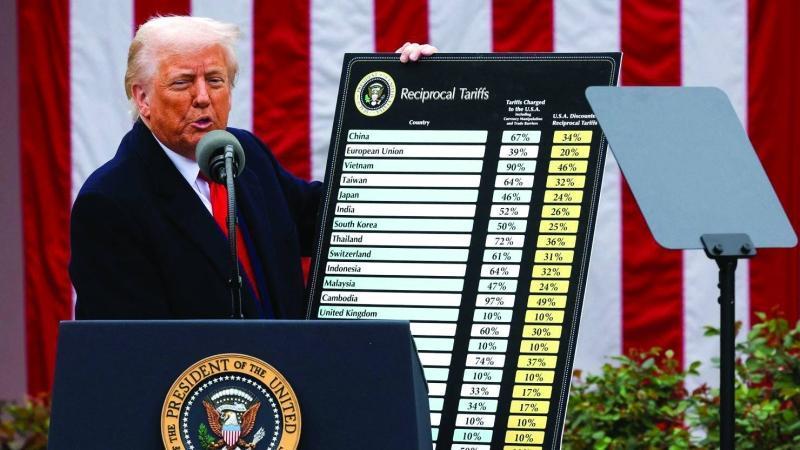Africa-Press – Botswana. While U.S. interest in Botswana’s rare earths signals new opportunities, some observers at home worry the fast-moving talks have left parliament and the public on the sidelines.
Concerns are growing that preferential access for foreign players could affect local beneficiation and long-term control of national resources. Botswana has made a bold pivot in its trade strategy, offering the United States early access to its critical mineral reserves in a bid to ease Washington’s heavy import tariffs. The move comes after the U.S. slapped a 37% duty on goods from Botswana in August 2025, a shock that rattled the Southern African nation’s economy and its billion-pula diamond trade.
Botswana, the world’s second-largest diamond producer after Russia, relies heavily on mineral exports, which contribute approximately $500 million annually to its trade with the U.S., according to industry reports like Diamond World. The new tariffs threaten to disrupt this vital economic relationship and have prompted intense diplomatic efforts from Botswana’s leadership.
Initial diplomatic outreach falls short
President Duma Boko’s administration initially reached out to the Donald Trump administration to request a delay or reconsideration of the tariff rollout. However, these diplomatic channels yielded no tangible results, forcing Botswana to reconsider its strategy. The tariffs consist of a baseline 10% duty introduced earlier in April 2025, combined with an additional 27% imposed under reciprocal trade measures. This move reversed the previously zero-rated tariff status for Botswana’s diamond exports to the U.S., placing considerable strain on local exporters and their American buyers.
“These punitive tariffs jeopardize the sustainability of Botswana’s diamond sector and pose a broader threat to economic growth across the African continent,” President Boko warned.
Botswana’s counterproposal: Partnership in critical minerals
Weeks after the tariff imposition, Botswana took a strategic turn by proposing a structured bilateral partnership with the U.S., emphasizing mutual benefit. The government’s “Strategic Bilateral Engagement” plan, submitted in July 2025, offers U.S. companies first-mover advantage in exploring three major mineral-rich zones within Botswana. These zones hold vast deposits of multi-metal resources, including rare earth elements considered vital for advanced technologies and national security.
A senior source close to the negotiations revealed that Vice President Ndaba Gaolathe met with U.S. Secretary of Commerce Lutnik Howard on July 19, 2025. Howard reportedly committed to sharing a detailed framework outlining U.S. trade concerns to help Botswana address them effectively.
The Botswana proposal laid out four key areas of engagement: Priority access to critical minerals
Botswana is willing to provide U.S. firms exclusive or early access to high-value mining opportunities. The government intends to collaborate with American companies, offering technical support and investment partnerships in mining ventures.
Investment facilitation across sectors
Beyond mining, Botswana opened doors for U.S. investments in renewable energy, healthcare, technology, and infrastructure. The government pledged to streamline these investments through its Botswana One Stop Service Centre (BOSSC), which expedites permits and authorizations.
Removing non-tariff barriers
Botswana proposed working with the U.S. to eliminate non-tariff barriers (NTBs) hindering trade, seeking both technical and financial assistance to accelerate ongoing efforts. The government invited U.S. authorities to specify particular concerns to improve trade facilitation.
Acceptance of U.S. standards
Botswana showed readiness to adopt U.S. product and industry standards where appropriate, aiming to harmonize regulatory frameworks and ease market access.
Early signs of progress
Following Botswana’s proposal, the U.S. responded by reducing the import tariff from 37% to 15%, a significant concession announced by Botswana’s Ministry of Trade and Entrepreneurship on August 15, 2025. Permanent Secretary Joel Ramaphoi explained that this reduction reflects the U.S. government’s broader strategy of establishing reciprocal trade frameworks with partners.
“Effective August 7, 2025, the reciprocal tariff rate applied to Botswana’s exports to the United States was lowered to 15% from the original 37%,” Ramaphoi stated, emphasizing that further tariff adjustments are possible as talks continue.
Ramaphoi also highlighted ongoing negotiations aimed at addressing both parties’ concerns to eventually reduce or remove the tariffs altogether.
Controversy and domestic concerns
Despite these diplomatic advances, Botswana’s proposals have sparked debate among local stakeholders. Critics, particularly from the mining sector, warn that offering mineral rights to foreign entities risks undermining national sovereignty and violates existing laws.
Mining rights in Botswana are governed by the Mineral Rights Act, and the protection of communal lands falls under the Tribal Land Act. Many argue that minerals are a national asset belonging to the people of Botswana, not subject to government negotiation without broader public consent.
Economically, mining accounts for nearly 30% of Botswana’s GDP. There is concern that granting U.S. firms preferential access could erode local beneficiation opportunities, threaten longstanding partnerships such as those with Debswana (a major diamond mining joint venture), and replicate exploitative models seen elsewhere on the continent.
Transparency has also come under scrutiny. The negotiations proceeded with limited parliamentary oversight and minimal public consultation, fuelling worries about accountability and the long-term impact of such bilateral agreements.
Botswana’s willingness to offer critical mineral access and broaden U.S. investment into other sectors underscores the country’s pragmatic approach to mitigating tariff-related challenges. At the same time, balancing economic opportunity with sovereignty and sustainable development remains a delicate task.
As both countries continue their trade discussions, the outcome will likely shape the future of Botswana’s mining sector and its relationship with one of its largest trading partners. Whether this approach will successfully restore favourable trade conditions without compromising national interests remains to be seen.
For now, Botswana’s engagement signals an adaptive strategy in a complex international trade environment, blending diplomacy, economic policy, and resource management.
Source: Mmegi Online
For More News And Analysis About Botswana Follow Africa-Press






